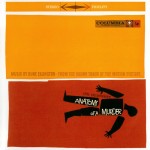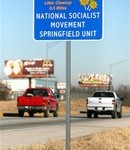Anatomy of an Op Ed
 I authored an opinion piece in support of Judge Sonia Sotomayor’s nomination to the Supreme Court that was published in the June 28, 2009 edition of the Milwaukee Journal Sentinel. You can read the piece here (and you can read a “dueling” piece authored by Rick Esenberg here).
I authored an opinion piece in support of Judge Sonia Sotomayor’s nomination to the Supreme Court that was published in the June 28, 2009 edition of the Milwaukee Journal Sentinel. You can read the piece here (and you can read a “dueling” piece authored by Rick Esenberg here).
What follows is a deconstruction of my own op ed piece. The final product as it appeared in the newspaper has its origins in the fundamentals of logic and rhetoric. Law students, in particular, may be interested in the way in which I employ several classic techniques of persuasive writing in order to make my case.
Believe in Your Argument: It is not necessary to have an angel for a client, but it helps. The most accomplished persuasive writing techniques will not hide the fact that your argument is a stinker. My task is to persuade the reader that my belief – that Judge Sotomayor is a moderate jurist who should be confirmed to the Supreme Court-is one that they should adopt as well. If I do not believe my own argument, I will not succeed in convincing the reader.
Know Your Audience: My language is directed towards the non-specialist, so I consciously avoided legal technicalities. Also, I assume that the average newspaper reader will be skimming the text rather than fully engaged in my arguments. Therefore, I utilize simple and direct sentences as opposed to rhetorical questions or complex syllogisms that require greater concentration to follow.

 When you are at your Fourth of July cookout or fireworks display this week, see if anyone mentions the Declaration of Independence. If they do, ask “which Declaration of Independence?” After all, there are more than one.
When you are at your Fourth of July cookout or fireworks display this week, see if anyone mentions the Declaration of Independence. If they do, ask “which Declaration of Independence?” After all, there are more than one.